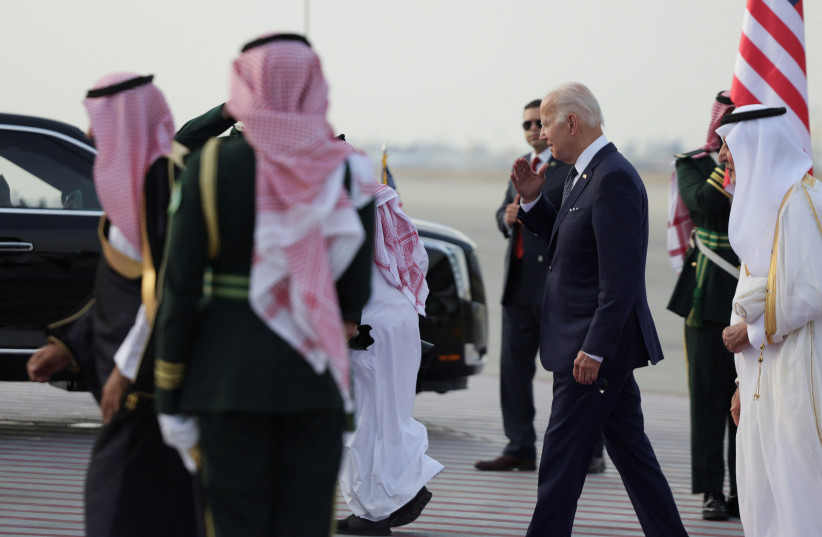The United States and Saudi Arabia agreed on the importance of stopping Iran from "acquiring a nuclear weapon," during a visit by US President Joe Biden, a joint statement carried by the Saudi state news agency (SPA) said.
The statement said Biden also affirmed the United States’ continued commitment to supporting "Saudi Arabia’s security and territorial defense, and facilitating the Kingdom’s ability to obtain necessary capabilities to defend its people and territory against external threats."
Tehran and Riyadh, the leading Shi'ite and Sunni Muslim powers in the Middle East, severed ties in 2016 over backing opposing sides in proxy wars across the region, from Yemen to Syria and elsewhere.
Saudi Arabia and the United States underscored the need to further deter Iran’s interference in "the internal affairs of other countries, its support for terrorism through its armed proxies, and its efforts to destabilize the security and stability of the region," the statement said.
"Saudi Arabia’s security and territorial defense, and facilitating the Kingdom’s ability to obtain necessary capabilities to defend its people and territory against external threats."
Joint statement
Both sides stressed the importance of preserving the free flow of commerce through strategic international waterways such as the Bab al-Mandab and the Strait of Hormuz.

Background
In 2015, Iran signed a deal with six major powers to limit its nuclear program to make it harder to obtain a weapon in exchange for relief from economic sanctions. Iran says its nuclear program seeks only civilian atomic energy.
In 2018, then-US President Donald Trump pulled the United States out of the pact, saying it was insufficient to keep Iran from developing nuclear weapons.
Iran has since ramped up some nuclear activities, putting a ticking clock on an attempt to return to a deal in talks between Western powers and Tehran in Vienna.
